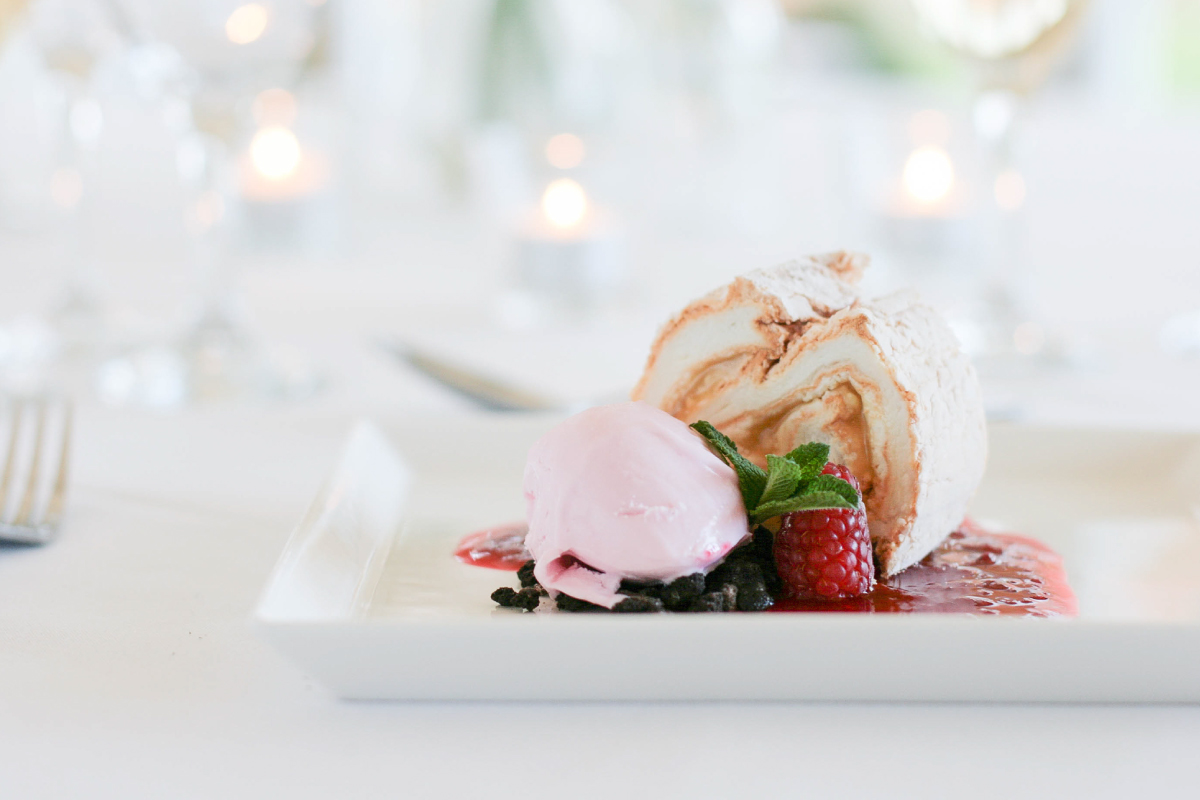Avoid common mistakes and pitfalls with expert tips and best practices for catering, and ensure a memorable dining experience for your wedding guests.
It’s easy to simply put the food on the shelf when you have so much other stuff to plan and perfect ahead of your wedding, but successful catering is really important. Not only is the food you provide the only meal your guests are likely to eat that day, but you also want this crucial part of the day to be memorable – and in a good way!
Check out our five dos and don’ts to help you nail your wedding catering.
1. Do: Communicate clearly with your caterer
Years from now, when your wedding is still the main topic of conversation between you and your friends, you’ll be so glad that you put in the time and effort to chase up quotes, follow up on appointments and stay in touch with your suppliers in the lead up to your wedding.
When communicating with your caterers, it’s more important than anything to state your expectations right from the start and have a mutual understanding of what will be provided.
And the best thing is, with multiple opportunities to taste the food in advance, you can be clear on every detail – what the food will look like, smell like, taste like…
Tip: If you are unsure what kinds of things to ask your catering company, think: budget, menu choices/preferences, dietary restrictions, timelines, deadlines, roles and responsibilities.
2. Do: Taste the food before finalising the menu
As we’ve just mentioned, food tastings are a must when looking for a catering company.
Every good caterer will give you the opportunity to taste dishes from their repertoire before your wedding to enable you to decide on a final menu. Not only will they give you a chance to try out the food, but they’ll also be able to suggest which starters would team well with your favourite main and likewise which dessert or wine to pair with your meal.
Remember, tasting their food is like letting you trying out a product – it allows you to work out if they are the right fit for you. For this reason, the caterer should not ask you to commit to a booking or pay a hefty deposit just to taste their menu, however some may apply a small, pre-arranged charge to cover some of their costs and outgoings. After this point, and only when you are happy with the proposal, you can sign a contract and look forward to treating your tastebuds to their food again on the big day.
Tip: Remember to trust your taste and preference. Not everyone likes the same things so don’t be afraid to ask questions about the ingredients and request adjustments. They won’t mind – they want you to love their food!
3. Don’t: Overcomplicate the menu
There’s being a foodie and there’s taking things one step too far. Don’t try to impress the caterers or your guests with your love of food and trying to come up with your own creative ideas. Take our advice – leave it to the experts!
As the saying goes, sometimes less is more and your caterers will have the experience and skill to know what has the most impact on the plate.
We’re not saying you can’t be adventurous and go for four or even five courses, but make sure what you are choosing is manageable (both to fit in with the timings of your day and with the size of your guests’ bellies!).
Tip: Remember that, although you might love heat and spice, not everyone has the same palate as you so you will need to incorporate a broad range of flavours in your dishes to cater for all.
4. Don’t: Forget to account for dietary restrictions
There’s always one…
Jokes aside, the chances are there will be a few people with dietary restrictions, whether it be down to allergies, intolerances or through choice.
To be inclusive and respect everyone’s dietary requirements and preferences, you’ll need to ask guests to alert you to any food restrictions in advance so that you can make special arrangements. The sooner you know, the more time you have to discover a brilliant alternative for them and ensure they’re not an afterthought.
Tip: If you are having buffet food as well as a sit-down meal, ask your caterers how they label dishes with allergens and how they will present the food on the counter (i.e. ensuring any vegetarian food is strictly not close to meat products).
5. Don’t: Overlook the importance of presentation.
Following on from the above, aesthetics is key as this can affect how your guests perceive your food.
When going to tastings, be sure to ask about presentation and see if they can show you images of some of their food on display (in the form of photos, brochures or the real thing).
If you want to go one step further don’t be embarrassed to ask if they can tie the appearance of their dish into your style – for instance if you have your heart set on a specific colour scheme, such as black crockery, then ask to see how they will style their food on a dark plate to make it stand out.
Tips: Have an image in your head of the type of serving ware, glassware, utensils and crockery you want to have on the tables so that you can incorporate your theme and colours into all elements of your wedding, including the food.
Happy eating!
